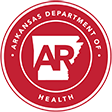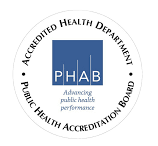Milk Program FAQ
Q: Can I sell raw milk?
Answer: Yes. Arkansas law (20-59-248) allows the sale of up to 500 gallons per month of raw milk to be sold at the farm to the end consumer. Raw milk cannot be sold in any store, farmers market, or any location other than the producing farm
| Downloads |
| Act 1209 of 2014 |
Q: What makes milk sour or go bad?
Answer: Heat. Milk must be kept cool – 40 degrees (40°F) or less. Milk will grow bacteria and sour if the temperature is allowed to warm above this temperature. Containers of milk must be clean, covered, and refrigerated.
Q: What is pasteurization?
Answer: Pasteurization is heating process that kills harmful bacteria in liquid foods without causing changes in the chemistry of the food.
Q: What is homogenization?
Answer: Homogenization is a process by which the fat droplets from milk are emulsified and the cream does not separate. While it is possible to have pasteurized milk that hasn’t been homogenized and homogenized milk that hasn’t been pasteurized, most milk found in U.S. supermarkets have undergone both processes. Milk that has been pasteurized, but not homogenized is commonly referred to as “cream line” milk and a distinct separation of the milk and cream can be seen.
Q: What do I have to do to start a dairy operation?
Answer: You would need to contact the Arkansas Milk Program. Your Milk Specialist will inspect the barn if it is an existing building. He / She will also tell you what is needed to meet the Grade “A” Specifications and provide you with a copy of them. You should also contact the local Natural Conversation Resources Services (NCRS). The NCRS will help you develop an animal waste disposal plan. They will work with you to get any permits from the Arkansas Department of Environmental Quality (ADEQ) that you may need.


